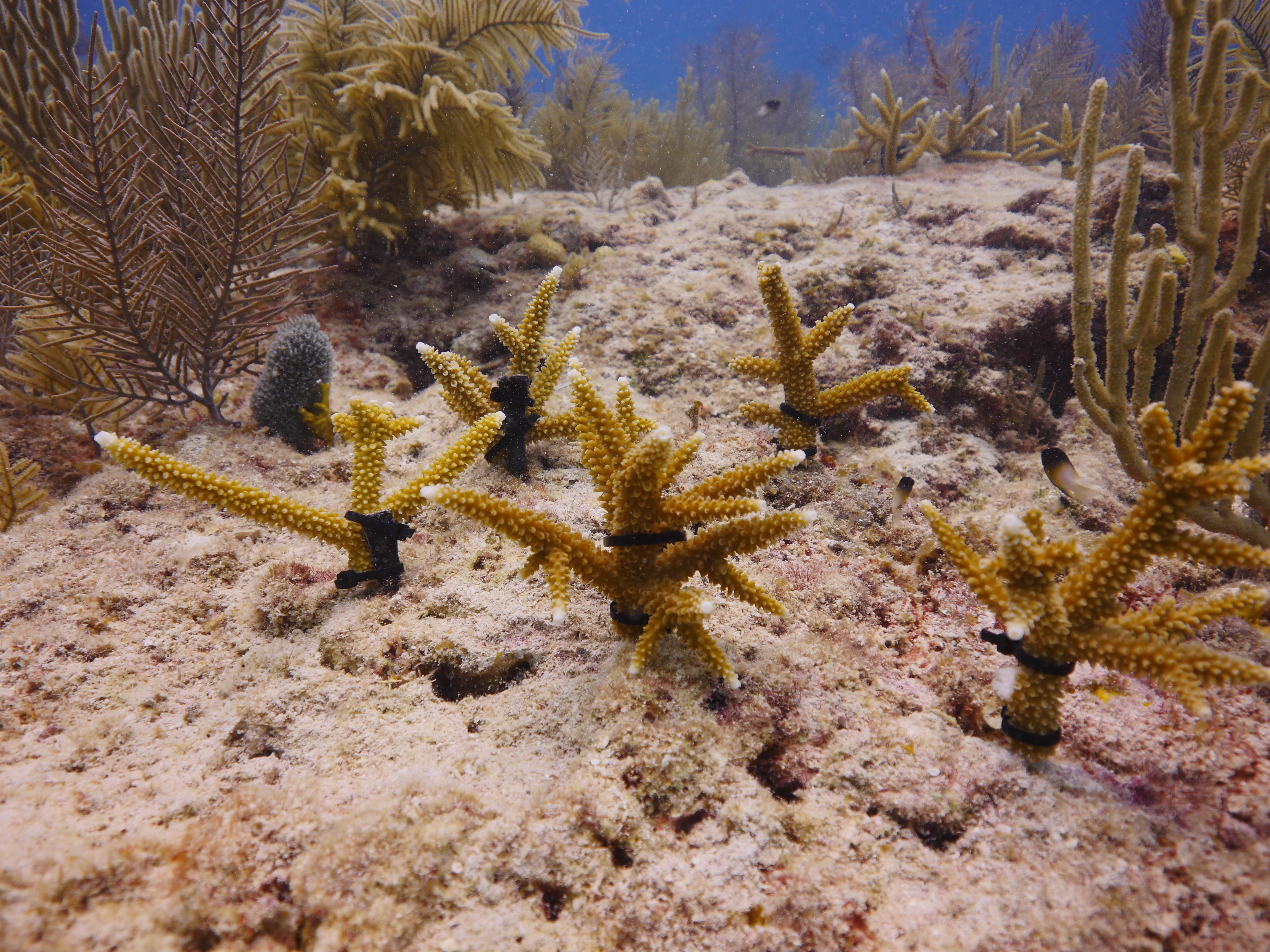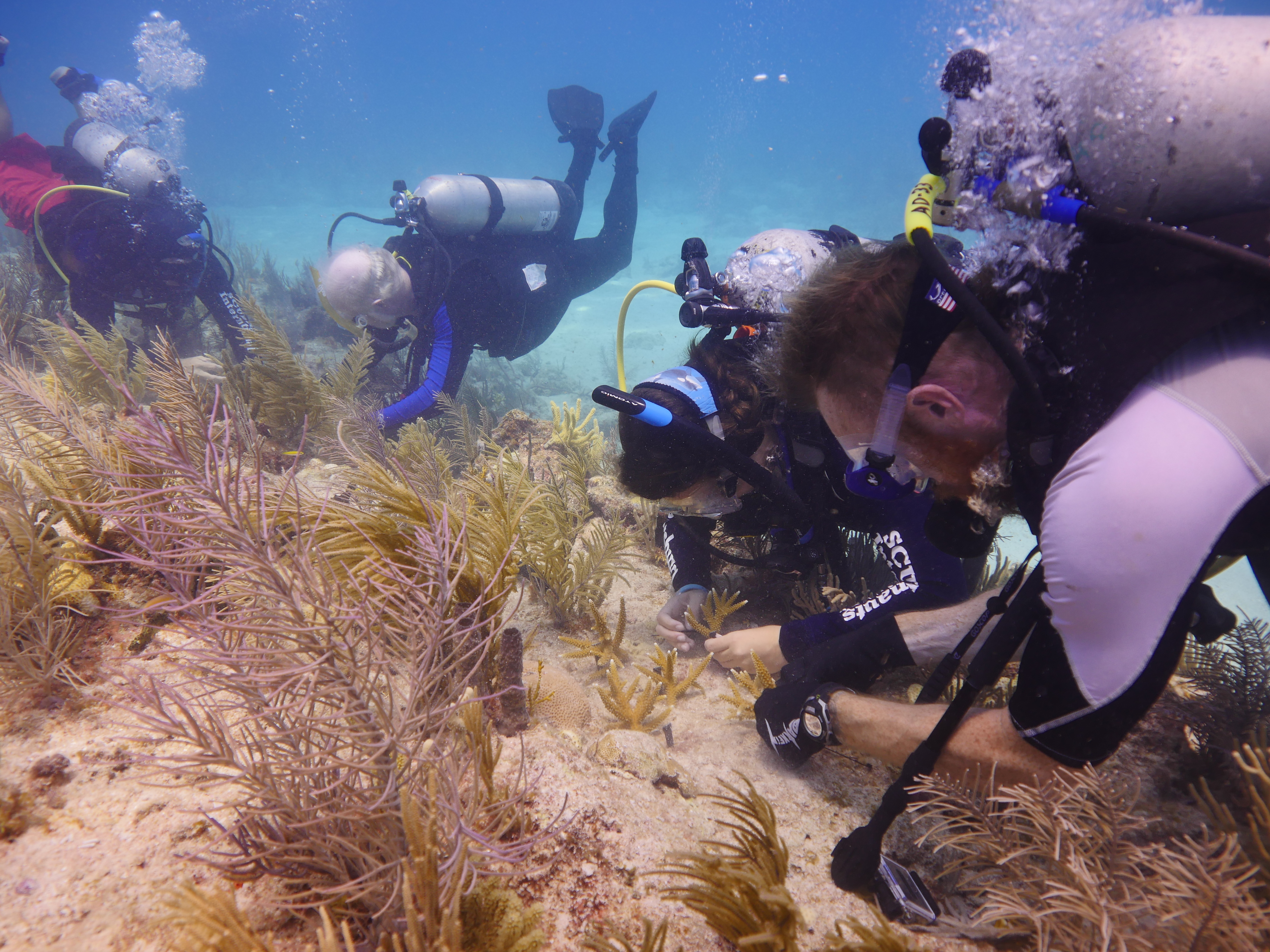Mote campaign progress: $2 million gift for Keys building, $40-million campaign milestone
Photo above: A digital rendering of the new research and education facility that Mote Marine Laboratory plans to construct on its existing property on Summerland Key, Fla.
The Rick and Nancy Moskovitz Foundation has donated $2 million toward Mote Marine Laboratory’s new research and education facility in the Florida Keys — the largest donation for the planned building to date.
With this generous gift, total donations for the new facility surpass $3 million, generating exciting momentum to start the construction process during early 2016 at Mote’s existing property on Summerland Key, Fla.
The donation also marks a major milestone for Oceans of Opportunity: The Campaign for Mote Marine Laboratory: More than $40 million in commitments have been raised toward the $50 million goal of this Lab-wide fundraising effort, which was announced publicly in January 2015. Oceans of Opportunity is designed to support and expand Mote’s annual research and education operations; spur long-term growth in the endowment to provide security and sustainability for Mote’s future; and finance construction of a major new Keys facility with approximately 26,000 square feet of research and science-education infrastructure.
Mote scientists and partners plant corals for restoration in the Florida Keys. (Credit: Joe Berg/Way Down Video)
“The Moskovitz Foundation has taken a bold step forward with this substantial gift to support independent marine science, conservation, education and restoration of natural resources,” said Dr. Michael P. Crosby, President & CEO of Mote. “They are giving the incredible scientists at Mote, and our partnering researchers from all around the world, essential science infrastructure to address the grand challenges facing our oceans — particularly the global impacts of climate change, ocean acidification and disease affecting coral reefs, which are a major focus of our ongoing research and restoration efforts in the Keys.”
Crosby added: “This donation and similar acts of generosity have pushed our overall Oceans of Opportunity campaign over the unprecedented $40-million mark, making it the most successful fundraising effort in Mote’s 60-year history.”
Rick and Nancy Moskovitz connected with Mote’s home campus in Sarasota to learn how to be good stewards of the ocean ecosystems in their own “backyard” and support conservation and sustainable use of marine resources — a key tenet in Mote’s 2020 Vision & Strategic Plan.
“As coastal residents, we marvel daily at the beauty and complexity of our neighboring dolphins and manatees and the diversity of marine life,” said Rick Moskovitz. “This diversity is under pressure from various human activities that result in changing ocean temperatures, acidification of the seas, and degradation of coral reefs that once teemed with life and are essential to the survival of many species that breed and feed upon them. Saving this ecosystem is essential not only for its own sake, but also for the survival of our human population that relies on the delicate balance of the marine environment for the very oxygen we breathe.”
He continued: “Mote scientists have been on the forefront of reef research and restoration, developing ways to accelerate their recovery and growth. They have begun to reverse the depletion of these crucial structures. We believe that this work is an essential building block of a healthy environment and are excited to help them create their new facility and realize their vision of supporting healthy oceans for generations to come.”
Mote’s current facility plays a key role in global coral reef studies while hosting and supporting the work of approximately 150 scientists from over 60 different U.S. and international institutions, in addition to many of Mote’s 35 Ph.D.-level researchers.
The new building will more than double Mote’s research and education space in the Keys. It will be LEED-certified, environmentally sustainable and perfectly suited to enhance Mote’s impact locally and around the world as a global center of excellence focused on studying and restoring coral reefs. Mote works to understand and address global threats to reefs — particularly climate change, ocean acidification and disease. The Lab emphasizes actively countering and mitigating these threats through innovative efforts to restore reefs.
Florida has the only barrier coral reef along the continental U.S., which helps attract millions of visitors, contributes more than $6 billion annually to Florida’s economy alone and provides essential habitats for fisheries and threatened species. People worldwide depend on marine ecosystems for food, medicine, tourism, culture, art and quality of life.
During the last 40 years, Florida’s indigenous corals have declined in some areas by more than 90 percent, with some species losing more than 97 percent of their populations. To understand and address these severe declines, there is an urgent need to upgrade Mote’s research and education facilities on Summerland Key.
“Reef restoration is critical and urgently needed, but it must be supported by sound science — this is our specialty at Mote,” said Dr. Dave Vaughan, Executive Director of Mote’s Summerland Key lab. “We restore reefs using genetic strains of corals that have the best chances of surviving changing conditions; We’ve developed innovative methods to restore large boulder, star and brain corals — essential reef builders — in just one-to-two years instead of the centuries it might take for natural reef recovery; we’ve placed a great emphasis on restoring staghorn corals and other species listed under the Endangered Species Act.” Vaughan added that these efforts aim for long-term impacts. “We’ve followed restored corals over time and found that their survival rate exceeds 95 percent — and some of our restored corals have reproduced on their own, in the wild.”
Vaughan said: “These are the results from our current facility, which is now half a century old. Imagine the impact we can have with this new facility.”

Staghorn corals planted by Mote scientists in the Florida Keys. (Credit: Joe Berg/Way Down Video)
The new facility — being designed by Hall Architects and built by Willis A. Smith Construction, Inc., with significant engagement of local businesses in Monroe County — will include advanced technology laboratories; environmental control rooms; new seawater systems; ocean acidification research support infrastructure; experimental tanks and instrumentation to support diverse fields of marine science studies; and dormitories, offices, classrooms and meeting rooms with full communications connectivity.
In late January 2016, two residential and office buildings on Mote’s Summerland property will be demolished, leaving the current science building and working lab fully operational throughout construction. Construction will ramp up during summer 2016, with the goal of opening the facility in early 2017. Once the new project is complete and fully operational, the old lab building will be demolished and replaced with additional outdoor research infrastructure.
This construction process is the most visible sign that Oceans of Opportunity has entered its home stretch. About $5.2 million is needed for construction of the Keys facility alone, and the commitments of more than $3 million to date have brought the project tantalizingly close to its goal.
“The Moskovitz family understands the incredibly positive impact their philanthropic investment in Mote will have for the future of coral reefs in Florida and around the world. They have also pushed us over the $40 million mark for our campaign and significantly raised the level of energy and excitement of many other Mote supporters in Monroe County and beyond to help us achieve our campaign goal as quickly as possible,” Crosby said.
He continued: “The Moskovitz Foundation has given a tremendous gift that demonstrates enduring respect for the mission of Mote and love for our oceans. The positive effects of their giving in this holiday season will ripple far into the future.”
To support Oceans of Opportunity, visit www.moteoceans.org or contact Erin Knievel at 941-388-4441, ext. 415, or eknievel@mote.org.

